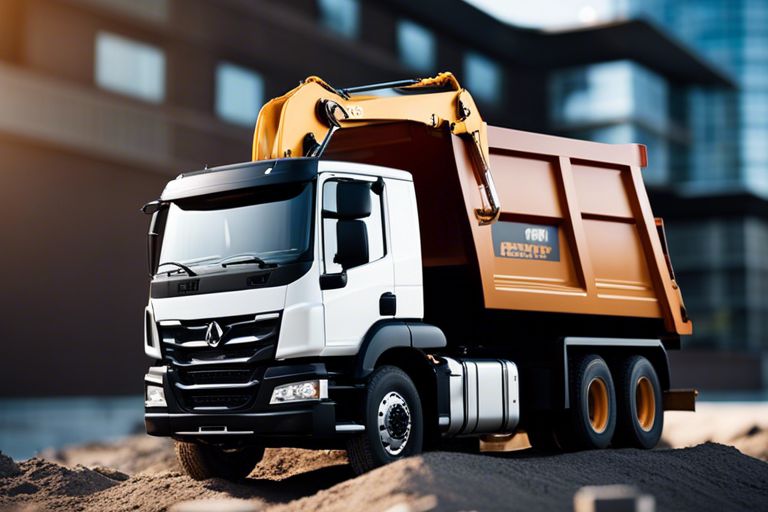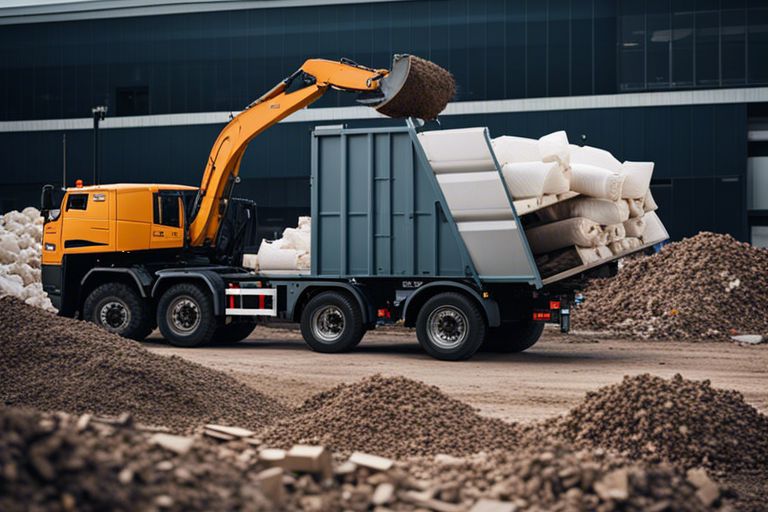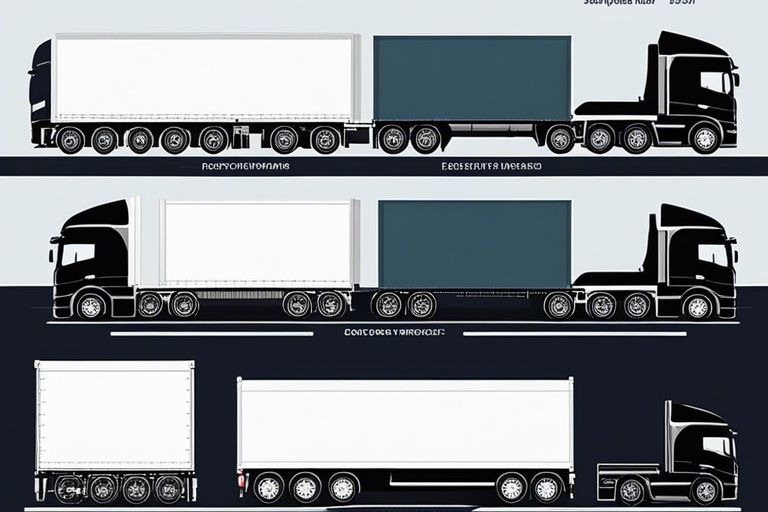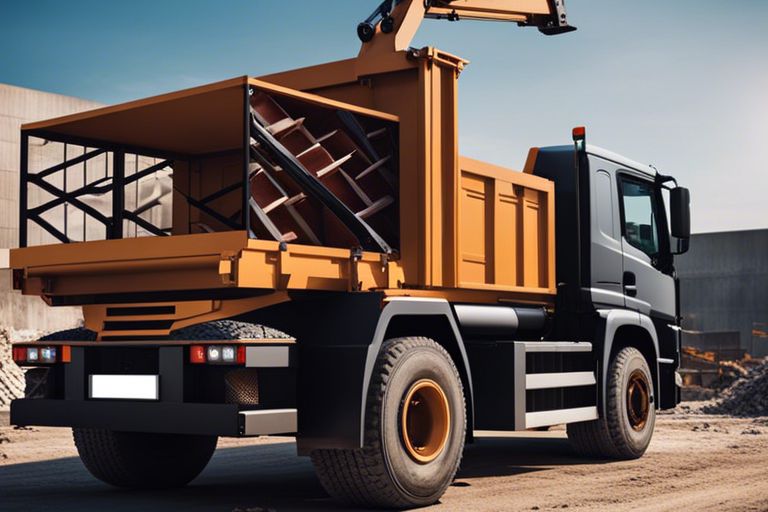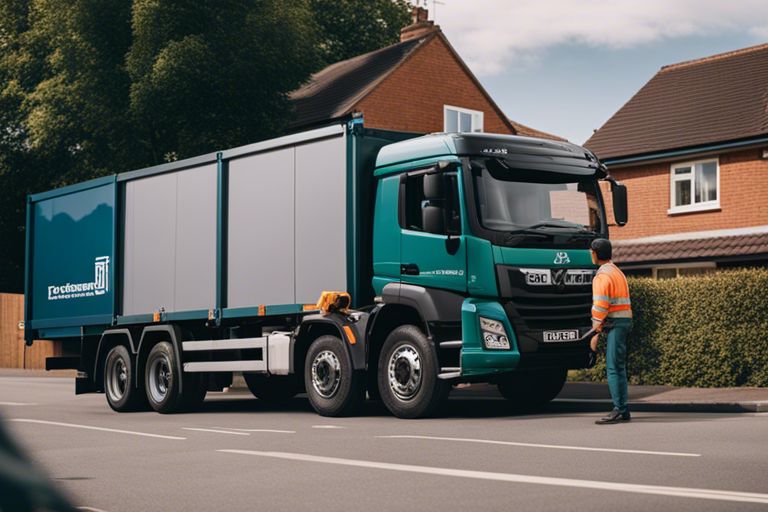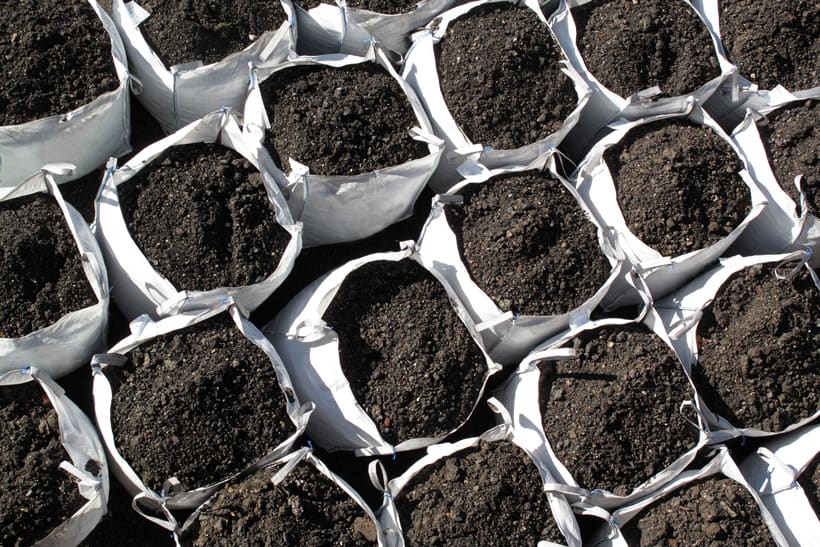Indisputably, having a courteous approach towards waste removal can significantly impact the harmony of your neighbourhood, especially during home improvement projects. The proper disposal of waste not only contributes to maintaining a clean and tidy environment but also plays a crucial role in preventing potential hazards and inconveniences for your neighbours. In this informative blog post, we will delve into the key etiquette guidelines for waste removal to ensure that your neighbours remain satisfied and undisturbed during your projects. For more in-depth information on how to mitigate disturbances during home renovations, check out How to Not Annoy Your Neighbours When Doing …
Key Takeaways:
- Communication: It is crucial to communicate with your neighbours before starting any waste removal project. Let them know the duration of the project, the potential disturbance, and how you plan to minimise any inconvenience.
- Timing: Be mindful of the timing of your waste removal activities. Avoid early morning or late night disruptions, and try to schedule work during weekdays when most people are out.
- Cleanliness: Always make sure to clean up after each day of work. Keep the area tidy and dispose of waste responsibly to avoid any complaints from your neighbours.
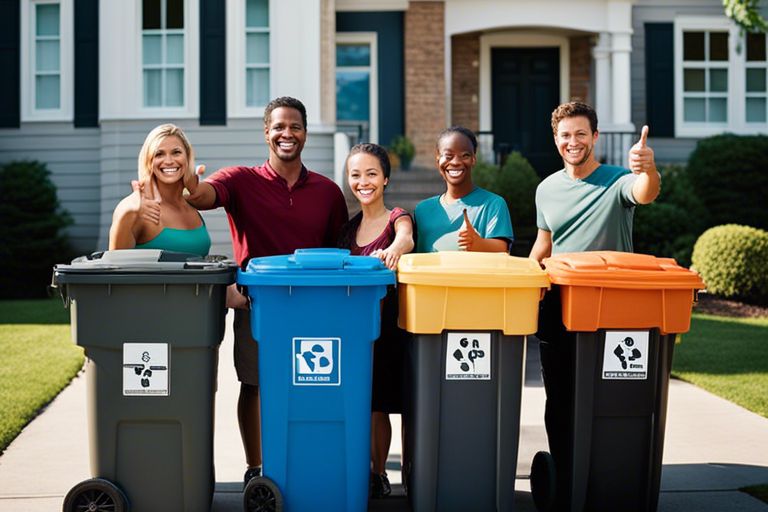
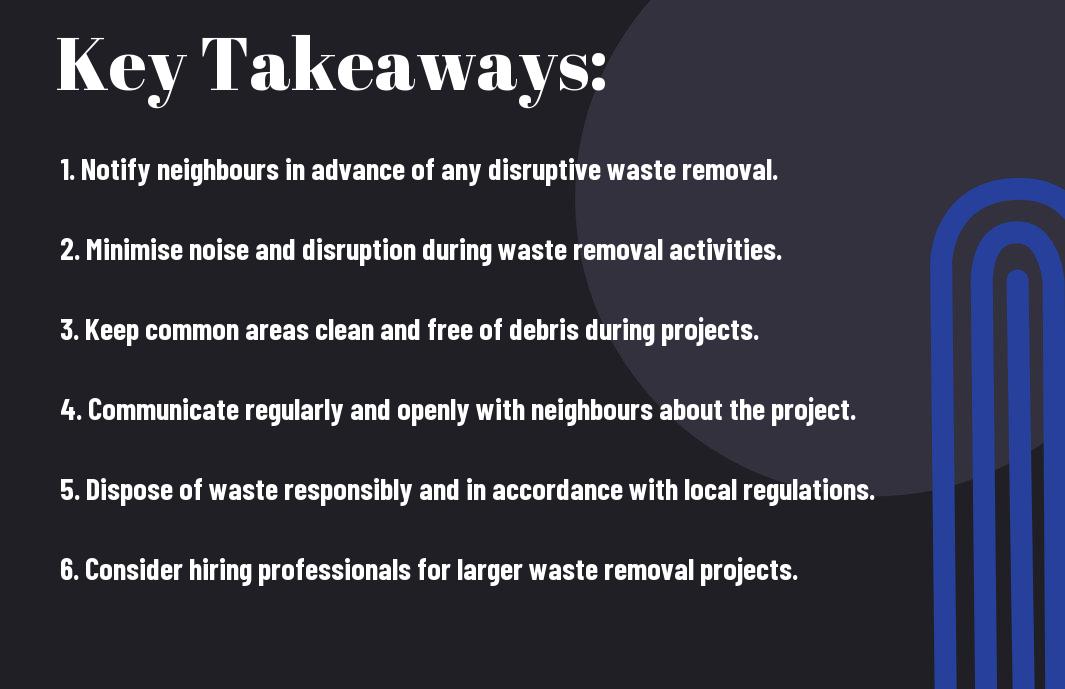
Planning for Effective Waste Removal
Assessing the Scope of Your Project
Before diving into any waste removal project, it’s crucial to assess the scope of the work ahead. Consider the type and quantity of waste that will be generated, as well as any special disposal requirements for hazardous materials. This assessment will help you determine the appropriate waste removal services and ensure that all necessary precautions are taken.
Furthermore, understanding the scope of your project will allow you to devise a comprehensive waste removal plan that minimises disruptions to your neighbours and maximises safety. By identifying potential hazards and addressing them proactively, you can prevent accidents and keep your community safe.
Scheduling Waste Pickup and Removal
Once you’ve assessed the scope of your project, the next step is to schedule waste pickup and removal. Coordination with a reputable waste removal company is vital to ensure that the waste is collected and disposed of in a timely and efficient manner. By scheduling these services in advance, you can prevent unsightly and hazardous accumulations of waste on your property, keeping your neighbours happy and your project running smoothly.
It’s also essential to consider any local regulations or restrictions on waste removal, such as designated pickup days or specific disposal guidelines. Adhering to these regulations not only demonstrates good neighbourly conduct but is also legally required, with penalties for non-compliance.
When scheduling waste pickup and removal, it’s important to communicate with your neighbours and keep them informed about the timing and details of the process. Providing them with advance notice and addressing any concerns they may have can foster goodwill and cooperation within the community, making the waste removal process more manageable for everyone involved.
Waste Removal Etiquette Basics
When it comes to waste removal during home projects, it’s important to keep in mind the impact it can have on your neighbours. Proper waste removal etiquette is essential for maintaining a good relationship with those living in close proximity to you. This includes following guidelines for waste disposal, as well as communicating effectively with your neighbours throughout the process.
Communicating with Neighbours
Before starting any project that will involve waste removal, it’s vital to communicate with your neighbours about the upcoming work. Let them know the duration of the project, the type of waste that will be generated, and any potential disruptions that may occur. This open communication will help to manage expectations and avoid any unnecessary tension.
Proper Placement and Containment of Waste Materials
Once the waste materials are generated, it’s important to properly contain and place them in designated areas. Ensure that waste bins are securely covered to prevent any spillage or attract pests. Also, place the bins in a location that is away from your neighbour’s property and any public walkways. This demonstrates respect for their space and helps to avoid any potential hazards.
Remember: hazardous materials such as chemicals or sharp objects should be handled with extreme care and disposed of in accordance with local regulations. Failure to adhere to these guidelines can result in fines, harm to the environment, and strained relationships with your neighbours.
Handling Special Types of Waste
When it comes to waste removal, it’s important to handle special types of waste with care and consideration. Hazardous materials and bulky items require special attention to ensure the safety and well-being of your neighbours and the environment.
- Hazardous materials such as paint, chemicals, and batteries should be disposed of responsibly to prevent harm to people and wildlife.
- Appliances, furniture, and other bulky items need to be handled properly to avoid causing inconvenience and eyesores in the neighbourhood.
Hazardous Materials Handling
When dealing with hazardous materials, it’s crucial to follow local guidelines and regulations. Protective gear such as gloves and masks should be worn, and the materials should be securely packaged to prevent leakage or spillage. Always use designated disposal facilities to properly handle and dispose of hazardous waste.
Disposing of Bulky Items
Disposing of bulky items requires planning and coordination to ensure they are collected and disposed of properly. Contact your local council to arrange for the collection of large items such as mattresses, furniture, and white goods. Consider donating reusable items to charity or arranging for professional removal services for large or heavy items.
Thou, it is essential to be considerate of your neighbours and the environment when dealing with hazardous materials and bulky items. Proper disposal of these special types of waste is crucial for maintaining a harmonious community and protecting the surroundings from harm.
| Hazardous Materials | Proper handling and disposal required |
| Bulky Items | Planning and coordination for responsible disposal |
Resolving Conflicts and Misunderstandings
When embarking on a waste removal project, it’s essential to maintain good relations with your neighbours. Sometimes, conflicts and misunderstandings can arise, but it’s important to address them promptly to avoid escalating tensions. To ensure a harmonious neighbourhood, familiarise yourself with the 20 Unspoken Rules Of Good Neighbor Etiquette and be proactive in resolving any issues.
Approaching Disputes with Neighbours
When faced with a dispute, the first step is to engage in open and honest communication with your neighbours. Approach them calmly and respectfully to discuss the problem, ensuring you listen to their perspective. Finding a compromise or mutually beneficial solution is paramount to maintaining a peaceful coexistence. If a resolution cannot be reached, seeking mediation from a neutral third party may be necessary to resolve the issue.
Legal Considerations and Compliance
It’s vital to be aware of legal considerations when undertaking waste removal projects. Ensure that you comply with local council regulations and obtain any necessary permits to avoid potential legal repercussions. Additionally, consider liability and responsibility for any damage or disruption caused to neighbouring properties. Adhering to legal requirements and seeking professional advice where needed demonstrates a commitment to upholding the law and protecting both yourself and your neighbours.
Adhering to legal requirements and seeking professional advice is crucial to maintaining positive relationships with neighbours and avoiding potential disputes. Demonstrating respect for legal considerations and compliance not only protects the interests of all parties involved but also contributes to a harmonious living environment.
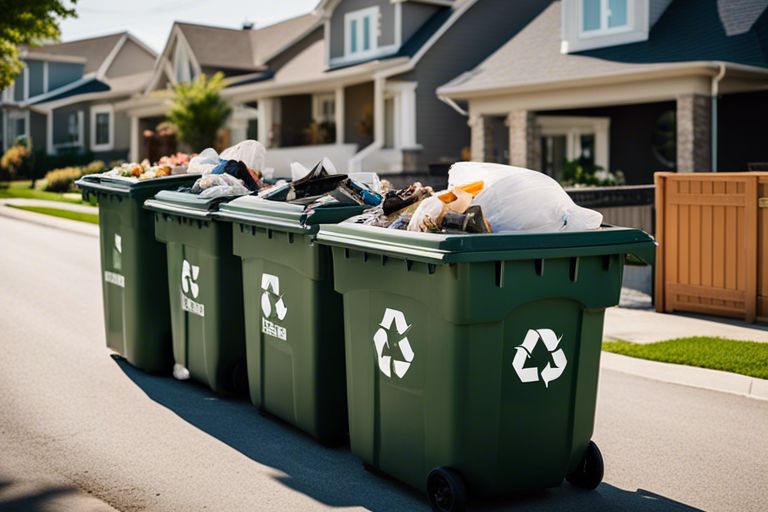
Waste Removal Etiquette – Keeping Neighbors Happy During Projects
In conclusion, it is important to remember that waste removal etiquette is an essential aspect of any project, not only for environmental reasons but also for maintaining good relationships with your neighbours. By following the guidelines and being considerate of others, you can prevent unnecessary disruptions and complaints. Always communicate with your neighbours about the project and the waste removal plans, and make sure to keep the area clean and tidy. Furthermore, be sure to dispose of waste responsibly and in accordance with local regulations. By sticking to these simple etiquette rules, you can ensure that your projects are not only successful but also well-received by the community.
FAQ
Q: What are some important waste removal etiquette tips to keep neighbours happy during projects?
A: Some important waste removal etiquette tips include informing neighbours in advance, keeping the area tidy, and scheduling waste removal during appropriate hours.
Q: Is it necessary to obtain permission from neighbours before starting a waste removal project?
A: Yes, it is important to obtain permission from neighbours before starting a waste removal project to maintain good relations and avoid any potential disputes.
Q: What should be done with waste materials that cannot be disposed of in regular bins?
A: Waste materials that cannot be disposed of in regular bins should be collected and disposed of at a designated waste disposal facility or by hiring a specialised waste removal service.
Q: How can one minimise the impact of waste removal on neighbours?
A: You can minimise the impact of waste removal on neighbours by keeping noise levels down, using appropriate equipment, and ensuring minimal disruption to their daily routine.
Q: What are the consequences of not following waste removal etiquette and guidelines?
A: Not following waste removal etiquette and guidelines can lead to complaints from neighbours, strained relationships, and potential legal issues if local regulations are not adhered to.

